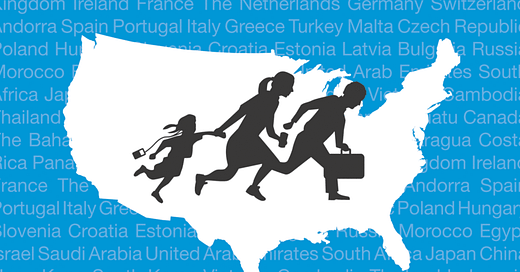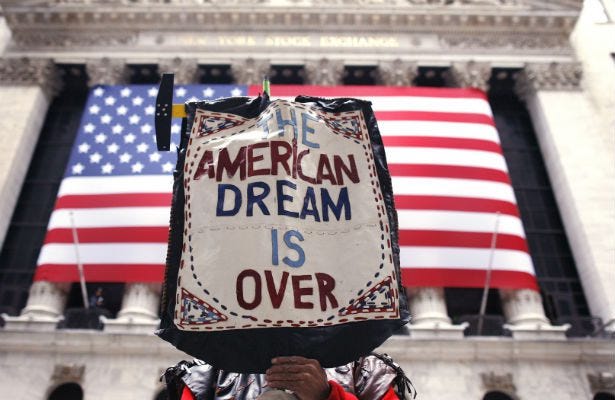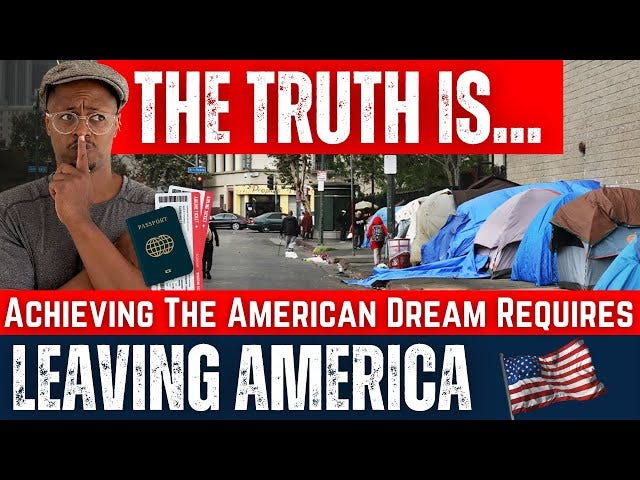A few months ago, my niece was shot at while travelling on Interstate 5 near Seattle. Her husband and father-in-law were hit, but both have recovered, physically at least. Her two small children were also in the car. The assailant was suffering from severe paranoia, convinced that drivers on the highway were chasing him. Over a three hour period, he fired at five other cars, causing serious injuries, though no fatalities. The day before, he’d sought help from police and social services, but was turned away. Frustrated, he got a gun, as one does in America.
Since the shooting, my niece has had good days and bad; at times she can forget the spectre of that masked man shooting at her, at other times it torments. Her family endures many wounds, not all of them visible. With life suddenly precarious, they're musing about moving to a safer country, like Canada or the UK. I doubt that it will come to anything, but it’s nevertheless significant that a quintessentially American family is even thinking about upping roots. They're not alone.
The incident involving my niece hardly caused a stir in the national media because five other mass shootings occurred that same day, two of them resulting in fatalities. There were 585 in 2024. In the previous year, over 43,000 Americans died from gunshots; it’s the leading cause of death for those under nineteen. The associated costs of all that carnage exceeds $500 billion every single year.
I’m not, however, interested in discussing America’s obsession with guns. There’s no point in doing that, since nothing ever changes. Shootings provoke a brief flurry of outrage but then Americans settle back into grim normality. Gun slaughter is, apparently, the price they are prepared to pay for the right to bear arms.
I’m instead interested in the American quality of life – specifically, the point at which things become intolerable for some people, either because of guns or some other modern malady. For the first time in my long memory, Americans are talking seriously about leaving. What does this mean for the ethos of America, a country that was once Eden for the hungry, huddled masses?
Gun violence tears families apart, but so too does the crippling cost of healthcare. More than 100 million Americans are currently carrying medical debt, with over 40 per cent of cancer patients pushed to the brink of bankruptcy within two years of diagnosis. A similar number can’t afford medicine they’ve been prescribed. The shooting of Brian Thompson, CEO of UnitedHealthcare, provoked a disturbing level of delight among Americans who worry about the cost and scope of their insurance coverage.
Meanwhile, there’s other sources of disquiet, other groups feeling vulnerable. The LGBTQ cohort are fearful of hard earned rights being taken away. Women are worried about how far the ‘pro-life’ backlash will extend. Blacks and Hispanics are concerned about an upsurge in racial intolerance.
And then there’s the malaise triggered by Donald Trump’s imminent return to the White House, this time bolstered by a sympathetic Congress and a cabinet of sycophants. Previously, the loss of an election was borne as one bore a bad winter or a leaky roof. In contrast, this election seems existential to many Americans, something that strikes at the very core of how they perceive themselves and their country. In 2016 there was a determination to resist. Now, it seems, a sense of hopelessness prevails.
In the days after the election, Google searches on topics relating to emigrating were 15 times higher than before November 5th. Traffic on sites providing information on moving to New Zealand, the most popular destination, was 76 times higher. Bureaucracy.es, a firm that provides advice on the visa process in Spain, found that three times as many people were booking consultations as before the election. Marco Permunian of Italian Citizenship Assistance asked his staff to arrive early on the day after the election. The phones in his Los Angeles office started ringing at 6:00 a.m. and didn’t stop.
Disgruntled Americans seem to think that they’ll be welcomed wherever they want to go, an attitude that perhaps reflects their sense of exceptionalism. In fact, all countries limit immigration, just like the US does. Some, however, are recognising the advantages of offering residence permits to highly trained, affluent Americans. The website Expatsi links interested individuals to the countries that suit them best and those most likely to be welcoming. A Spanish scheme is directed at the self-employed, particularly in tech industries, who can easily move their business to Spain. Portugal has a Golden Visa programme open to those willing to invest €500,000 immediately, or donate €250,000 to a Portuguese charity. The scheme advertises heavily on social media, highlighting Portugal’s great food, pleasant weather, low crime rate and absence of guns.
It’s easy to dismiss this interest in emigration as the typical whining of disgruntled liberals; they’re derided as snowflakes accustomed to getting their own way. In any case, there’s a big difference between talking about leaving and actually doing it. The complexities of pulling up roots, leaving family behind, negotiating the intricate visa process and actually finding a new home will undoubtedly cause the vast majority to abandon the idea and instead just wallow in discontent. The important point, however, is not that people will actually leave the US but rather that they’re talking about doing so. That's what's new. There’s been a lot of coverage of this trend in the mainstream media, but every writer misses a crucial point: America is not supposed to be a place that people want to leave. It has built its reputation on being the promised land, the apogee of ambition.
The desire to leave one’s native country is not unusual. It happens everywhere. During times of hardship, those with ambition look abroad to countries of greater opportunity, like the Scots did during the Highland Clearances. In Britain, until very recently, the number wanting to leave has kept pace with the number desiring entry, yielding a net migration that consistently hovered around zero. The situation is different in the US, which has always been a magnet for migrants. Poles, Germans, Italians and Dutch flocked to America in the 19th century, while Vietnamese, Indians and Koreans have done so more recently.
For most of its history, the majority of the American population was just one generation removed from suffering. My own family provides a perfect example: my parents left the Netherlands in 1950 convinced that their country would never recover from the war. America offered everything: prosperity, freedom, opportunity and security. And back then guns weren’t a problem.
When I was growing up in southern California, I was taught that America was the best country on earth. It was the land of the free, as if freedom didn’t really exist elsewhere. That’s what everyone is still taught; it’s the American Gospel. The myth is reinforced by the fact that most Americans don’t travel outside the US and those that do often fail to immerse themselves in different cultures. Comfortable in a cocoon of imagined exceptionalism, they find it difficult to recognise that freedom and prosperity might exist in other countries.
Jason and Reina (they don’t reveal their surnames) left Houston, Texas with their daughter Juliana in 2022. Their intention was to spend a year in France, what they call a slow holiday. It soon dawned on them that their life had improved significantly. One year stretched to two and now they’re on a path to permanent residency. They have a YouTube podcast and website called Baguette Bound where they describe their experiences and offer advice to other Americans wanting to follow in their footsteps. In the rich panoply of podcasts, theirs are pretty ordinary, but they do attract over a million viewers.
In their first podcast they discuss three myths that every American grows up with: that America is the greatest country on earth, that her citizens are uniquely free and that the quality of life is second to none. ‘We didn’t even realise … how ingrained these ideas are in the psyche of Americans until after we left’, Jason confesses. In later episodes they delve into more detail about quality of life: in France they've encountered healthier food, more accessible healthcare, a slower pace of life. And, most importantly, they feel safe.
I witnessed that same transformation when I taught at the University of St Andrews, where around 20 percent of my students were American. They arrived as quintessential Yanks – self-righteous and confident – but their certainties were gradually undermined. At the end of their four year degree they’d come to a realisation that America was not uniquely perfect. Every year, some would ask for advice about how to stay in Britain. I was supposed to be an authority, having travelled the same path decades before, but back then it was much easier.
My mother, after arriving in America, had the quintessential immigrant experience: she worked long hours, put her five kids through university, bought a house. She believed that America had been good to her. Then, late in life, she visited Holland and found that her old friends enjoyed a better quality of life. They didn't have to worry about retirement, or crippling medical debt, or getting shot. She began to wonder whether she’d made a big mistake. Perhaps fortunately, dementia kept her from witnessing her entire net worth disappear down the healthcare sinkhole.
It remains to be seen whether the sense of unease that’s currently evident in America will turn into an exodus. It probably won't. Some will leave, but most will just fantasise. Much depends on how President Trump behaves. But something has nevertheless changed, and that’s a good thing. The myths are being undermined. Eyes are opening. Americans are experiencing some illuminating failures – in healthcare, gun violence, education, the quality of life. The open-minded among them are exploring better options elsewhere. This is how a nation matures. There’s no gain in preserving a myth of perfection.







I left for Sweden with my family in 2019. What is happening now is what I feared and more. My heart is breaking but I am also hugely relieved that we got out. It is so much better here.
Yes, let's hope so. America seems to be in self destruct mode at the moment. The people who voted for Trump will probably be the ones who suffer the worst when prices rise and health care becomes even less accessible.